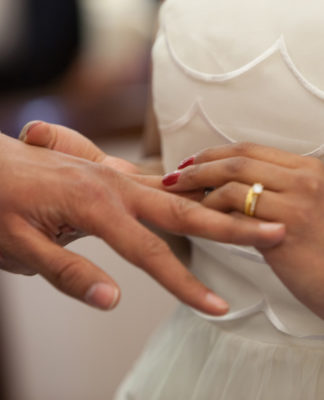Probably as long as there have been sit-down toilets, women have been trying to get men to put the seat down when they’re done. Women can get pretty animated about the subject and men often blow it off as unimportant. Within any given relationship, it can carry way more importance than would seem intuitively obvious from the subject matter. So what’s it really about?
Well, it’s more than wet nighties, wet bottoms, or even that awful sudden drop as if someone has pulled a chair out from under you. It can start out as these things, but it becomes something more. As a woman expresses her wishes to her partner, she looks to his response to tell her how he feels about her wishes and needs. She interprets from his response whether he considers her feelings important, important enough to put in the effort to modify his own behavior. Yup; this isn’t about commodes at all; it’s about partnerships. It’s about whether she can trust him to be responsive to her feelings. This can look way overblown if it’s about bathroom habits. When seen more accurately as about the quality of the relationship, it’s true proportion is revealed.
Men sometimes feel that they’re commitment to their partners is inadequately understood and appreciated. They’re often clear that they’d give their lives without hesitation to protect their partners. Still they’re getting accused of being uncaring for failing to put down the toilet seat (or some comparable offense). It seems so unfair. But there are other factors at work here.
For instance, sometimes it’s not so much the size of the deed as it is the frequency. How often is a husband going to step in front of a train for his wife? Sure, he would; but it’s not likely to come up in the course of daily living. On the other hand, the toilet seat thing is a daily survey of, “Are you responsive to my feelings?”
It’s not just a bathroom thing, of course. The same question comes up in all sorts of contexts and not just for women. Men and women are interpreting their partner’s behavior all the time as being responsive or unresponsive. If your male partner is anxious because you’re attending a late meeting across town, are you responsive to his anxiety in some way (take your cell phone, carry pepper spray, call when you’re safely in your car, whatever)? If your female partner has asked you for a kiss each morning when she leaves for work, are you responsive to the request?
Male or female, if you are responsive in some positive fashion, your partner hears an affirmation of the relationship. If you are unresponsive — ignoring, dismissing, or willfully opposing the request – your partner is hurt and disappointed. Your reaction says that you’re indifferent to his or her feelings. This gets carried to the next level of interpretation, what I’ve called the “meta” level. Now the small act that did (or did not) occur serves as a way of judging what the deeper feelings are. The small daily events in a couple’s interactive life are interpreted by both partners as representative of the nature of their partner’s deepest feelings. It is on the basis of how we imagine these deep feelings that we predict what later, more important behavior and choices might look like. We predict, not on the basis of what our partners say they would do, but on the basis of what they have done, big and small.
While the toilet seat issue is gender-specific, the principle here is not. Whatever your gender and that of your partner, each request is an opportunity to affirm to your partner your commitment to him or her and to the relationship. Grab the chance to make that affirmation. Failure to do so makes a different kind of statement, whether you consciously choose to do so or not.




















